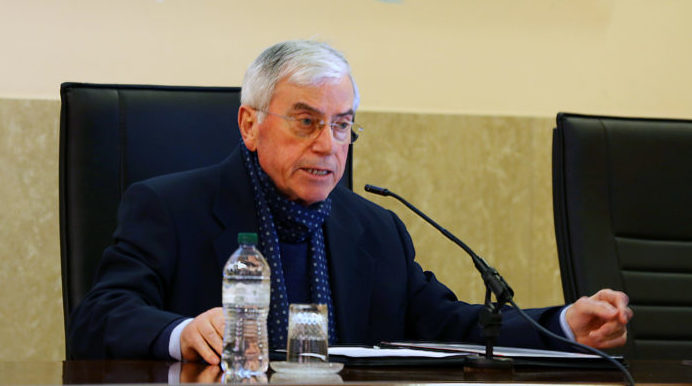The irreplaceable role of the family in times of pandemic, the project of a “Pastoral Care of the Family”, the value of the education of children, are the points discussed by Father Sabatino Majorano in the online meeting held on 13 May with the laity (Giovanna Corsale, diocese of Alife-Caiazzo)
Pope Francis’ Apostolic Exhortation Amoris Laetitia was the leitmotif of the reflection meeting with the laity, led by Fr. Sabatino Majorano, C.Ss.R., and held in streaming on 13 May. To the families and those who joined online to the event, Father Majorano illustrated the main points of the contents of Amoris Laetitia concerning the value of the family, its function as a ‘pillar of society’, especially in times of uncertainty such as the current one, dwelling finally on the duty of “caring for the education of children”.
The reading of the family that emerges from the Apostolic Exhortation Amoris Laetitia and that Father Sabatino Majorano suggests is not “standard elaboration, but is the journey made together with many families to grow in response to the love that God had given them”. The Special Year, which Pope Francis launched on 19 March, is a year dedicated to prayer and reflection on and for the family, an initiative proposed by the Pontiff to mark five years since the publication of the Exhortation, but above all an invitation to “take charge of the new situation that the pandemic has created in every family context”.
The time of crisis and uncertainty opened up by the Covid has only reinforced the role of the family in society, its irreplaceability and its ability to “make up for the shortcomings of health structures“, despite being strongly marked by the pandemic. The family is a symbol of resistance and sacrifice, bent by the many difficulties caused by the emergency and concentrated in a “sense of apprehension about the future”, which grips young people, adults and the elderly. But it is precisely in the light of a sociological and relational framework compromised by the Virus that the suggestions in Amoris Laetitia should be applied, a true “road map for the Christian community” to be led by experiencing the Gospel of the family as “joy that fills the heart”.
But the family also means “commitment in society“, the commitment to witnessing “how beautiful it is to create a family“, especially to young people, who today are all too discouraged and sometimes frightened by the idea of building something together. This discourse is a forerunner to the role of the family within the ecclesial reality, broadening the horizon of pastoral care to include ‘spouses, children, young people, the elderly, situations of family fragility’. It is a courageous proposal, but Father Majorano emphasises, “it takes into account listening and dialogue” and the image of joy that the family conveys” because “it reflects the gaze of Christ”.
The choice to form one’s own family is not the response to duty, “it is not a model to be applied, but it is the certainty of being able to plan the journey by putting all the richness of our personalities to good use”, it is openness “to the gaze of Christ, listening to reality in its lights and its shadows”. The love between spouses is the tangible sign of Christian charity that they realise in absolute and mutual love, a love that generates ‘fruitfulness, that is, creating life in the other who is walking with me’, it is the ability to understand when ‘God calls us to become co-operators of life together with him’.
In the perspective of a pastoral ministry of the Family, there is a need for family education: parents have the task of taking care of the formation of their children, through a path to be implemented, “repeating every day the gesture of love of Jesus” and with practical suggestions.
(clarusonline.it)






